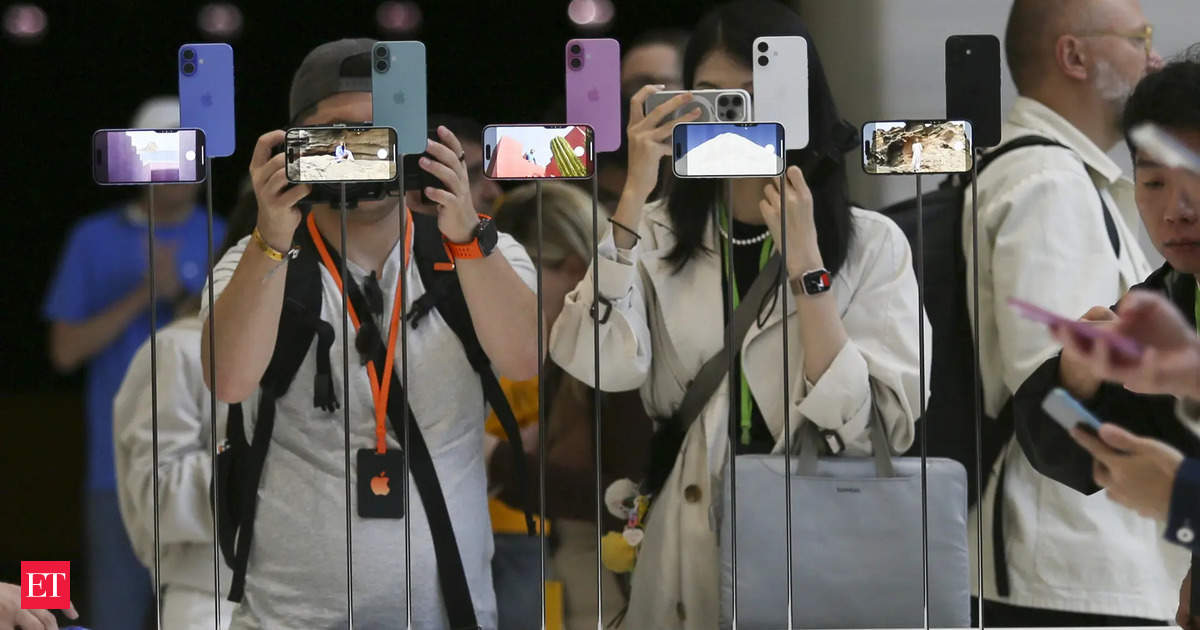On Friday, Apple will launch the iPhone 16 in nearly 60 countries, including the United States, China, India, Australia and South Korea. But the device will not come with the operating system installed. Apple Intelligence — the long-awaited artificial intelligence software the company has been promoting since June. That means users will have to download the software’s features as they become available over the coming weeks and months.
That has put Apple in a difficult situation. It is already marketing the AI Features The price tag is steep, but some consumers may wait to buy the new phones if they can’t enjoy the benefits right away. The iPhone’s new hardware, meanwhile, has only modest improvements over previous models. A touch-sensitive camera control button that makes taking photos and videos easier is the most noticeable change.
Still, Wall Street remains confident that Apple can accelerate its growth during the all-important holiday season. Analysts estimate revenue will rise 8% in the December quarter, the best result for that period since the end of calendar year 2021.
The new line includes two standard models, the 16 and 16 Plus, as well as high-end Pro and 16 Plus models. Pro MaxPre-orders for the devices began last week, with shipments to stores and customers starting Friday.
These days, it’s rare to see large crowds of iPhone buyers at Apple stores, but some die-hard fans have lined up at stores around the world. The big question will be whether ordinary consumers will also buy the new model.
The first units to go on sale will be iOS 18 operating system, but Apple Intelligence will require an over-the-air software update to iOS 18.1, which will be released in October.
Apple Intelligence was announced in June at the company’s Worldwide Developers Conference and has been available in a limited beta test for developers for the past few weeks.
On Thursday, Apple launched a public beta of Apple Intelligence, aimed at a broader audience, though most customers won’t be able to access it until the feature set is released in its final form next month. Additional capabilities won’t be available until later, as part of a phased rollout that will extend into next year.
When the tech giant introduced the iPhone 16 line, it said the devices were the first to be built “from the ground up” for Apple Intelligence. But some iPhones from last year (the 15 Pro and Pro Max) will also be able to support these features.
The new phones don’t look much different than the 2020 iPhone 12 design, but they do feature notable improvements to battery life and the camera beyond the new button. Prices start at $799 for the standard iPhone and go up to $1,199 for the Pro Max.
In recent years, consumers ordering phones from Apple’s online store have experienced significant shipping delays, a sign that supply was not meeting demand. This year, that problem has been less of a problem, either because orders are slower or because Apple has more phones available.
New orders for regular iPhone 16 models will ship in early October, while Pro versions will arrive mid-month.
Apple also introduced low-end AirPods and updated watches this month. The new earbuds, dubbed AirPods 4 —They are available in $129 and $179 versions, with the latter model including noise cancellation. This feature was previously reserved for the higher-end AirPods Pro, which cost $249.
Meanwhile, Apple’s latest smartwatches don’t offer a major reason to upgrade. The new Series 10 has a larger display and a slimmer design, but otherwise looks similar to the Series 9. The company’s only change to the high-end Ultra model, meanwhile, is a black color option. Still, the products could appeal to customers who have older Apple Watches or are new to the category.
The iPhone, Watches and AirPods won’t be Apple’s last new products in 2024. The company is also planning a major refresh of its Mac computers later this year.
Apple is bringing its AI-focused M4 processor from the iPad to MacBook Pro laptops and the iMac desktop computer. It’s also preparing the most significant refresh of the Mac mini in the product’s two-decade history, including a smaller design and new chips.
Disclaimer:
The information contained in this post is for general information purposes only. We make no representations or warranties of any kind, express or implied, about the completeness, accuracy, reliability, suitability or availability with respect to the website or the information, products, services, or related graphics contained on the post for any purpose.
We respect the intellectual property rights of content creators. If you are the owner of any material featured on our website and have concerns about its use, please contact us. We are committed to addressing any copyright issues promptly and will remove any material within 2 days of receiving a request from the rightful owner.

